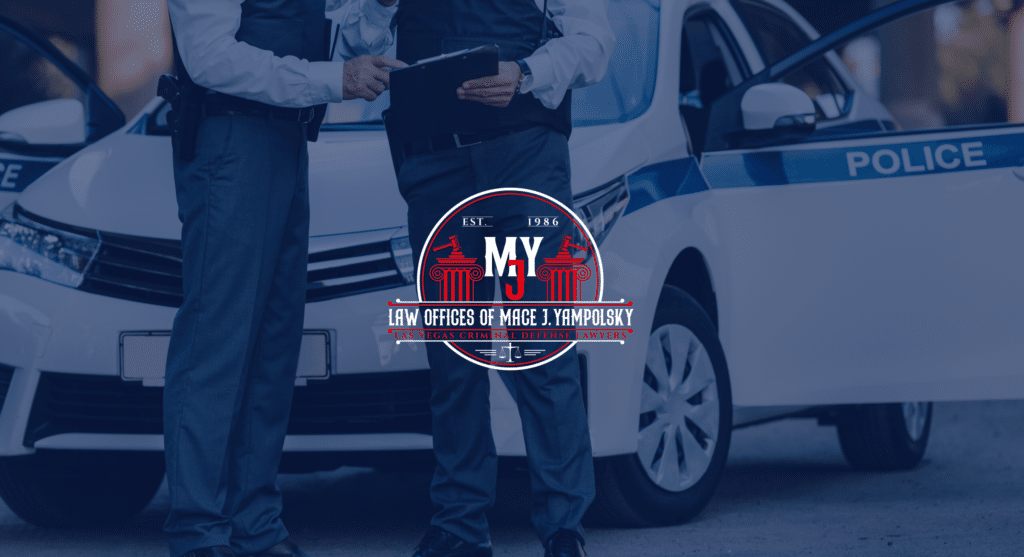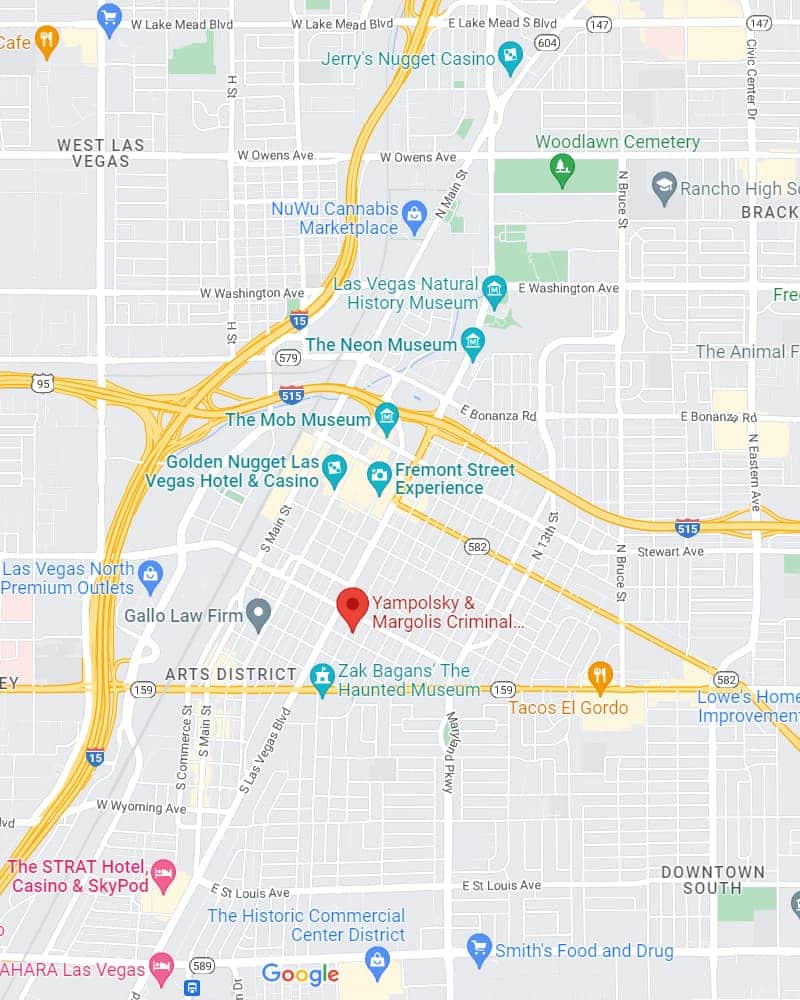You might be curious about how long a driving under the influence (DUI) arrest stays on your record if you were arrested in Nevada. The type of DUI offense, the number of prior offenses, and whether additional charges were filed during the arrest are some factors that will determine the answer.
This article will tackle how long does a DUI stay on your record in Nevada, so let’s look at it in more detail.

Definition of DUI in Nevada
Driving under the influence is shortened to DUI. It includes any of these illegal actions:
- Driving when under the influence of alcohol;
- Driving when under the influence of drugs, including marijuana;
- Driving a vehicle with a BAC (blood alcohol content) of.08% or above, regardless of whether the driver is drunk or
- Driving when under the influence of drugs, regardless of if the driver is impaired
Depending on if the defendant has a history of DUIs and whether the DUI resulted in injury or death, DUI charges may be tried as a felony or a misdemeanor.
Important Definitions This Article Covers
Before we get into how long a DUI stays on your record in Nevada, let’s explain a few terms you’ll see throughout this article. It will deepen your understanding of this matter.
What Does Record Mean in This Case?
The term “record” for a DUI typically refers to a criminal record. It is a file that police departments, courts, and other government agencies maintain that includes information regarding any prior arrests or convictions you may have had. It might also cover civil cases registered with government agencies, including divorces.
A “record” could also relate to your DMV driving record. It is a history of your driving behavior, including any violations or citations you have previously earned.
Regarding DUIs in Nevada, we’ll discuss both kinds of records.
Last but not least, the DMV driving record and criminal record are both regarded as public documents.
“After the Case Ends”: What Does It Mean?
“After the case ends” or “after the case is closed” in the context of a DUI refers to the conclusion of all proceedings. It implies that one of two things:
- The case was dismissed.
- You were acquitted at trial.
- You have been found guilty and have completed all the conditions of your sentence, including paying fines, attending classes, doing your jail time, etc.
It is crucial because the waiting period doesn’t start until after the sentencing period, for instance, if you are found guilty and your license has been suspended for three years.
What Does “Waiting Period” Mean?
The time you must wait before having your DUI record sealed is called the “waiting period.” It also holds for convictions for other crimes. Only after the case is concluded does this waiting time begin.
For example, suppose you were arrested and charged with DUI, but the case resulted in dismissal. The case “ends” immediately.
For example, if you were found guilty. After that, you’ll receive a penalty for the offense, such as six months in jail. If you have served your sentence and there are no outstanding obligations, the waiting period won’t begin until after you have done so. Your “case ends” when you have completed serving your sentence.
DUI Penalties in Nevada
According to NRS 484C.110, possible penalties for DUI in Nevada include:
- The duration of jail sentences ranges from two days to six years.
- Fines range from $2000 to $400
- License suspension can last from six months to three years.
- DUI school
- Your car must have an ignition interlock device (IID) for a minimum of six months and a maximum of three years.
- Rehabilitation for substance abuse if you have committed multiple offenses.
You could be subject to further penalties not listed here if your case includes other offenses.
Sealing of Records vs Expungement
Records that are sealed and those that are expunged have different meanings. Although they are frequently used interchangeably, they are two different concepts. A sealed record exists but is not available to the public. An expunge record signifies that it has been removed from your record.
The state of Nevada prohibits the expungement of criminal records.
Your DUI can, therefore, only be sealed.
How Long Does A DUI Conviction For First Offense Stay On Your Record?
A DUI on your first offense remains on your criminal record for at least seven years. It is presumed that a misdemeanor charge was brought after the conviction. There are differences in conviction for offenses related to DUI; we’ll go into further detail below.
Additionally, this is the “waiting period” before you file a petition to have your records sealed, another reason it’s at least seven years.
For instance, on December 28, 2021, you were detained and accused of DUI. It took six months to complete the legal process, including paperwork, court dates, and other related activities. On June 30, 2022, the court ordered you to pay fines and serve six months in jail. You will have fulfilled your sentence requirements on January 1, 2023. The waiting period will begin at this point.
For example, as of January 1, 2030, you must wait seven years before requesting that the court seal your record.
The average time for this record sealing process is two to four months. It is presuming that all the information is accurate.
How Long Does A DUI Conviction For a Second Offense Stay On Your Record?
The waiting period is the same for second DUI convictions within seven years of the first conviction. DUI convictions will, therefore, remain on your record for at least seven years.
The severity of the penalties is the primary difference between the first and second violations. Higher penalties and/or the longer end of a jail time range indicate this.
Once more, it is presumed that the conviction was for a misdemeanor.
How Long Does A DUI Conviction For a Third Offense Stay On Your Record?
In Nevada, a DUI with a third violation within seven years counts as a felony.
Convictions for felonies cannot be sealed in Nevada, unlike in certain other states.
This means that if you are convicted of DUI for the third time, even if there was no physical harm or death, the misdemeanor immediately turns into a felony DUI conviction.
How Long Will a Felony DUI Remain on Your Record?
Felony DUIs are permanently on your record. It will stay on record until your death, and the sole way to remove it is to have it expunged—which is impossible in Nevada, as we already discussed, regarding criminal records.
Convictions for felonies are only possible if you have three DUI convictions within seven years or if a DUI resulted in death or serious injury.
How Long Does a DUI With Dismissal Stay on Your Record?
You can immediately request record sealing if your DUI case is dismissed. If you don’t take this action, the charge will remain on your record permanently, even if it doesn’t result in a conviction.
Since pursuing this will enable you to have a clean criminal record, you should do so as soon as possible. If you need a criminal defense lawyer to help you with this matter, call our law firm at (702) 385-9777.
How Long Does a DUI Charge/Arrest Stay on Your Record
If you don’t follow the required actions to get a DUI charge expunged, it could remain on your record permanently. In this case, the best action is to get your records sealed immediately by filing a court petition.
Your records will remain hidden from prospective employers, landlords, and background checks if you want to have them sealed.
As previously indicated, unless you file a request to have them sealed, these remain on your record regardless of whether the case is dismissed or you are found not guilty. There isn’t a waiting period that you have to complete to have charges dismissed.
How Long Will a DUI Stay on The DMV Driving Record?
DUI convictions will be permanently recorded on your driver’s license for the remainder of your life. However, the “good” news might only appear on your driving record for a maximum of ten years.
You can obtain a copy of your last three or ten years’ driving records in Nevada. It’s crucial to remember that a list of license suspensions and revocations is absent from the 3-year driving records. If you would like to verify that information, you have to select the 10-year version.
Once more, your DMV records and criminal records are kept apart. They are both regarded as public records. It implies that various individuals, including insurance companies, employers, and landlords, may access this data.
Filing for record sealing is the only method to ensure that your DUI is not listed on your driving record.
Can A DUI Be Expunged?
In Nevada, a DUI cannot be expunged. Getting your record sealed is the only method to get your DUI expunged from it. The only way to ensure that a prospective employer, landlord, or other interested parties cannot access the information is to use this procedure, which operates differently than an expungement.
When records are expunged, the conviction is removed from the record and is no longer accessible through background checks. Conversely, record sealing denotes preserving the record while keeping it hidden from the public.
Nevada prohibits the expungement of documents. Unless you apply for a record sealing, a DUI conviction will remain on your record permanently.
Your Record Can Be Sealed
You may have heard that a DUI can be “expunged” or deleted from your record. Sadly, Nevada prohibits this kind of relief. NRS 179.245 does, however, permit a person to get their criminal record “sealed” in certain cases following a predetermined period.
A typical background check will not yield information about the conviction or arrest if your record is sealed. Legally speaking, it is regarded as never having occurred. When it is pertinent to their purposes, government agencies—including law enforcement agencies—may still access information that has been sealed.
When qualified, you can ask the courts to suppress some parts of your criminal history or details about a single arrest or conviction. The following people qualify to have their DUI records sealed:
- First or second misdemeanor DUI – Seven years following the case’s closure, at which point you will have served out the entirety of your sentence or punishment.
- DUI was dropped to reckless driving – A year following the case being closed.
- Dismissed DUI charge – Instant eligibility.
- Felony DUI (the third conviction or DUI resulting in death or serious injury) – Never qualified for record sealing.
Sealing Your DUI Record in Las Vegas
In Nevada, getting copies of all necessary paperwork and signatures authorizing the request are just a few documents needed to seek a court order to seal criminal records. The information packet that must be turned in contains the following:
- The Nevada Criminal History Central Repository’s criminal history.
- A current, verified copy of your criminal history (SCOPE printout) is required to seal records. Local law enforcement agencies, like the Las Vegas Metropolitan Police Department, employ the Shared Computer Operations for Protection and Enforcement online records system.
- Any additional records in real form or on microfiche
- Signed petition for an order to record seal.
- A judge’s signed order to seal records
- Signed affidavit confirming the validity of the above documents.
A guide from the Clark County (Las Vegas) District Attorney’s Office details the steps needed and documents, with particular attention to the following:
- The wording of the petition and what facts it must contain.
- The sequence in which submitted documents must be presented
- You must send the type size of a self-addressed, postage-paid envelope to retrieve your records.
Additionally, “You are urged to talk to a private criminal defense lawyer” is stated in the DA’s guide.
The District Attorney is the first to review and approve petitions. You will then need to turn in your packet to the court clerk so that a judge may sign it if the DA grants the order to seal records. You will receive an explanation with the returned documentation if the District Attorney rejects your petition. You have two options: ask the court to have a hearing before a judge or amend and resubmit the document per the DA’s request. You must let the prosecutor’s office know if you get a hearing.
If your petition is rejected, NRS 179.265 mandates you wait two years before requesting a “rehearing” or another hearing. “No person may petition for multiple rehearings,” according to the law.

What can a Las Vegas criminal defense lawyer do for you?
Las Vegas criminal defense attorneys are skilled at interpreting the law to protect their clients from wrongful arrest, accusation, and conviction. If you are not a resident of Nevada, you might not be aware of your rights in a criminal case on your own.
You can put your case in our capable hands by collaborating with a DUI defense attorney from the Law Offices of Mace J. Yampolsky Criminal Defense Las Vegas.
Legal Services We Provide Our Clients
After you speak with a member of our team about your case, we can assign an attorney to represent you and provide a range of services, including:
- Legal representation: We can send someone to your initial arraignment or bail hearing when you appoint one of our attorneys to represent your interests. They will also be present at your case’s preliminary or pretrial hearings. You can get out of jail on low or no bail, have your case dropped, or accept a plea bargain if you have legal representation.
- Private investigation: Your attorney will plan the search for evidence to bolster your defense throughout the case’s discovery phase. It could entail getting in touch with witnesses (such as a bartender or employee of a liquor store), asking for copies of security or traffic camera recordings, and asking for the results of the blood test or breathalyzer tests you’ve taken.
- Administrative duties: Our experts will be handling your case. As your case develops, we will keep sending you updates, interacting with court personnel and other relevant parties, and submitting any necessary legal motions. It may be helpful if you live in another state because we can handle legal issues without requiring you to return to Nevada.
If you want legal help, our law firm is here to address your questions and concerns. We strive to be thorough in our defense preparation because we recognize that a DUI conviction can have long-term effects.
You Could Have Defenses That May Help You Avoid A DUI Arrest In Nevada
Although the specifics of your case will determine our approach, the following frequent defenses are employed in DUI cases:
- Test results don’t prove you are intoxicated: We’ll closely examine the methods used by the arresting officer to measure your blood alcohol content (BAC). We could claim that your test results are erroneous and do not establish your guilt if we discover that they didn’t recalibrate the breathalyzer, tainted your blood sample, or withheld your release after your test result was less than 0.08 percent.
- You weren’t driving: In Nevada, a driver is not charged for DUI unless they are in “physical control” of their car or are attempting to do so. The latter is a way to stop drivers from driving under the influence. On the other hand, your DUI defense attorney can contend that you behaved like a passenger and did not operate the vehicle if you were in the backseat or passenger seat.
- You were sleeping it off: This argument centers on the fact that you chose to pull over, park, and switch off your car while you slept for a sufficient amount of time to ensure that you were sober, demonstrating that you possessed no intention of driving while intoxicated.
Call Law Offices of Mace J. Yampolsky Criminal Defense Las Vegas for a Free Case Review
For a free case evaluation with our experts, contact the Law Offices of Mace J. Yampolsky Criminal Defense Las Vegas if you face DUI charges in Nevada. Our firm’s criminal defense lawyer in Las Vegas can assess your case and defend you in court. Our lawyers can review how long a DUI remains on your Nevada driving record and answer any questions.
Schedule a free case evaluation consultation by calling (702) 385-9777. Our DUI defense lawyers are ready to fight for your rights and work toward fewer or no charges, regardless of whether you have been arrested for DUI more than once or you don’t reside in Nevada.





